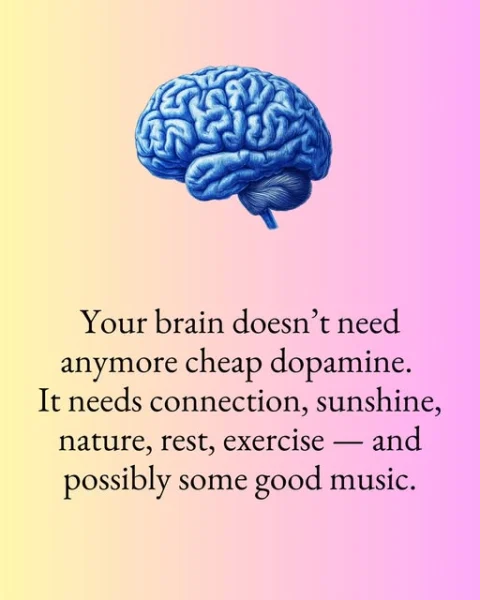Today, smartphones have become an essential part of our daily lives. However, excessive use of phones can have negative effects on both mental and physical health, ranging from anxiety and insomnia to reduced concentration. If you find yourself caught in the cycle of phone addiction, here are 5 science-backed tips to help you control and minimize the harmful effects of excessive phone use.

Turn off notifications to reduce anxiety and distractions
Constant notifications from phones are one of the main causes of distraction and anxiety. According to a study by the University of California (2017), continuously checking your phone can increase stress levels and reduce work efficiency. Therefore, to minimize this, you should turn off notifications or keep only those that are truly important. This will help reduce distractions, allowing you to focus on work and enjoy the present moment without worrying about what’s happening on your phone screen.
“Minimizing distractions is key to improving focus and reducing anxiety.” – Dr. Jean Twenge, psychologist at the University of San Diego, Psychology Today, 2018.
Keep your phone away during meals
Using your phone while eating not only diminishes the quality of your meal but can also negatively impact your health. A study by Harvard T.H. Chan School of Public Health showed that not focusing on your meal while using your phone can lead to overeating and a loss of awareness of hunger and fullness cues. Therefore, try to keep your phone out of reach during meals so you can savor your food and cultivate healthier eating habits.
Start your day without your phone
The morning is a crucial time to set the tone for an energized day. According to research by the National Sleep Foundation, checking your phone first thing in the morning can reduce alertness and make you feel stressed right from the start of the day. Instead of checking notifications or social media, spend at least 30 minutes in the morning relaxing, reading a book, drinking a cup of coffee, or meditating. Starting your day gently without distractions will help you feel better and boost your productivity throughout the day.

Avoid phone use before bed
Using your phone before bed can disrupt sleep due to the blue light emitted by the screen. A study from Harvard Medical School (2012) showed that blue light from phones and computers can reduce melatonin, the hormone necessary for deep sleep. To improve sleep quality, it’s recommended to limit phone use at least 30 minutes to 1 hour before going to bed. Instead, try relaxing with a book, listening to soft music, or doing some deep breathing exercises to prepare for a good night’s sleep.
Track your phone usage habits
One effective way to control phone use is to track your own habits. Use apps like Screen Time on iPhone or Digital Wellbeing on Android to monitor the time spent and the apps you frequently access. Recognizing these habits will help you become more aware and take action to reduce excessive phone use.
“Being aware of the time you spend on your phone will help you make better decisions in managing this habit.” – Dr. Nicholas Carr, author of “The Shallows: What the Internet Is Doing to Our Brains”, 2010.
These small changes can help reduce your dependence on your phone and improve your quality of life. By turning off notifications, keeping your phone away during meals, creating a phone-free morning, avoiding phone use before bed, and tracking your usage habits, you can begin the journey of mastering technology and re-establishing healthy habits for yourself.


HPX24h > Health > 5 Tips to Help You Overcome Smartphone Addiction
Top Reads from This Category
Health
Playing with Dirt: The Surprising Secret to Children’s Health and Immune System
Health
What Does a Right-Side Headache Indicate About Your Health?
Health
Step-by-Step Guide to Safely Relieving Bloating in Children
Health
Natural Remedies for Stomach Pain Every Parent Should Know
Health
The Mystery of Newborn Weight: How Does It Progress Each Month?
Health
Can Gray Hair Be Restored? What Science Says About Regaining Natural Hair Color
Health
What Is Epigastric Pain and What Causes It
Discover New Topics
Science
China’s Hypersonic Jumbo Jet Could Cut Beijing to New York Flight Time to Just 2 Hours
Animals
Gibbons Develop Vocal Techniques as Powerful as Humans: New Discoveries About Their Unique Sounds
Space
Three Earth-Like Planets That Could Support Life: New Discovery from NASA
Science
The First Person to Experience Physical Sensations Through a Prosthetic Hand
Health
Forgetfulness Can Bring Unexpected Evolutionary Benefits
Healthy Eating
How Many Calories Do You Need Each Day to Maintain Optimal Health?
Fitness
What is the Ideal Heart Rate for Running?
Healthy Eating
What Is Nutrition? Why Is It Important For Health?
Healthy Eating
How Much Protein Do You Need Daily: What’s Sufficient for Your Body
Animals
The Stunning Image of a Cheetah in Action During Its Hunt
Animals
The Care of Offspring: The Reproductive Secrets of Guppies
Healthy Eating
Vegan Keto Diet: Everything You Need To Know
Health
Exploring How Microplastics Enter the Body and Affect Health